
Lübeck: The Queen of Hanseatic League
Lübeck, a charming city in northern Germany, is often referred to as the 'Queen of the Hanseatic League.' With its picturesque old town, a UNESCO World Heritage Site, Lübeck offers a unique blend of medieval and modern attractions. The city’s skyline is dominated by the seven towers of the Gothic churches, a testament to its rich history and architectural grandeur. Strolling through the cobblestone streets of Lübeck’s old town, visitors can explore beautifully preserved medieval buildings, including the iconic Holstentor, which once served as a city gate. The city’s vibrant past is also reflected in its numerous museums, such as the European Hansemuseum, offering insights into the Hanseatic League's maritime trade. Art lovers will appreciate Lübeck’s connection to Nobel laureate Thomas Mann, with his former residence now a museum. Lübeck is also famous for its marzipan, a sweet treat that has been produced here for centuries. No visit to the city is complete without sampling this local delicacy at Café Niederegger. For those who enjoy water activities, the nearby Baltic Sea coast provides ample opportunities for sailing and beach outings. The city’s lively cultural scene, including music festivals and theater performances, ensures that there is always something to see and do.
Local tips in Lubeck
- Visit the Holstentor early in the morning to avoid crowds and get the best photos.
- Try the marzipan at Café Niederegger; it's a local specialty that has been made for centuries.
- Explore the European Hansemuseum to learn about the city's role in the Hanseatic League.
- Take a boat tour on the Trave River for a unique view of the city.
- Check out the cultural calendar for music festivals and theater performances during your visit.
Neighbourhoods in Lubeck
Lübeck: The Queen of Hanseatic League
Lübeck, a charming city in northern Germany, is often referred to as the 'Queen of the Hanseatic League.' With its picturesque old town, a UNESCO World Heritage Site, Lübeck offers a unique blend of medieval and modern attractions. The city’s skyline is dominated by the seven towers of the Gothic churches, a testament to its rich history and architectural grandeur. Strolling through the cobblestone streets of Lübeck’s old town, visitors can explore beautifully preserved medieval buildings, including the iconic Holstentor, which once served as a city gate. The city’s vibrant past is also reflected in its numerous museums, such as the European Hansemuseum, offering insights into the Hanseatic League's maritime trade. Art lovers will appreciate Lübeck’s connection to Nobel laureate Thomas Mann, with his former residence now a museum. Lübeck is also famous for its marzipan, a sweet treat that has been produced here for centuries. No visit to the city is complete without sampling this local delicacy at Café Niederegger. For those who enjoy water activities, the nearby Baltic Sea coast provides ample opportunities for sailing and beach outings. The city’s lively cultural scene, including music festivals and theater performances, ensures that there is always something to see and do.
When is the best time to go to Lubeck?
Unmissable attractions to see
Lübeck Cathedral
Experience the breathtaking Lübeck Cathedral, a masterpiece of Brick Gothic architecture and a symbol of Lübeck's rich medieval heritage.
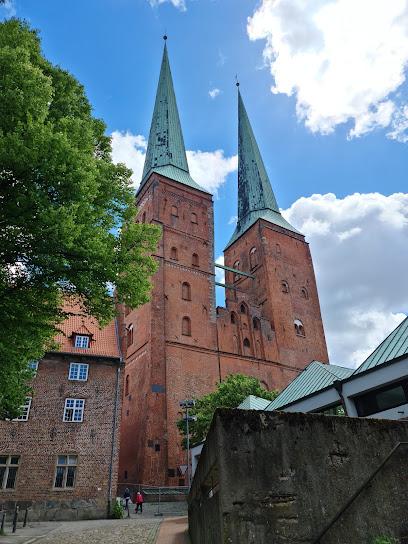
European Hansemuseum
Explore Lübeck’s rich maritime heritage at the European Hansemuseum, where history comes alive through captivating exhibits and interactive displays.
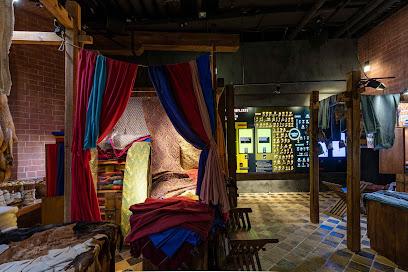
Ahrensburg Palace
Discover the grandeur of Ahrensburg Palace, a historical gem surrounded by lush gardens, rich in culture and stunning architecture in Germany.
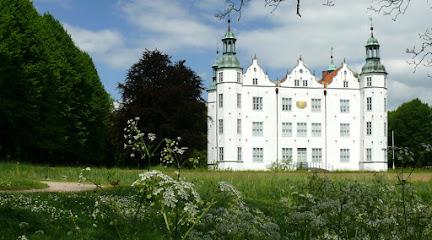
Hospital of the Holy Spirit
Experience history at the Hospital of the Holy Spirit, a medieval gem in Lübeck showcasing centuries of compassion and care amidst stunning architecture.
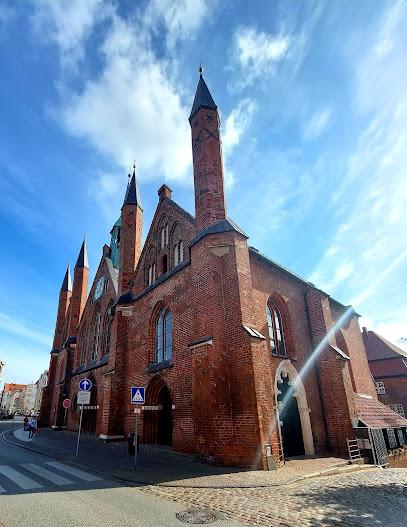
Marzipanmuseum Niederegger
Explore the sweet heritage of marzipan at the Marzipanmuseum Niederegger in Lübeck, a delightful blend of art, history, and delicious treats.
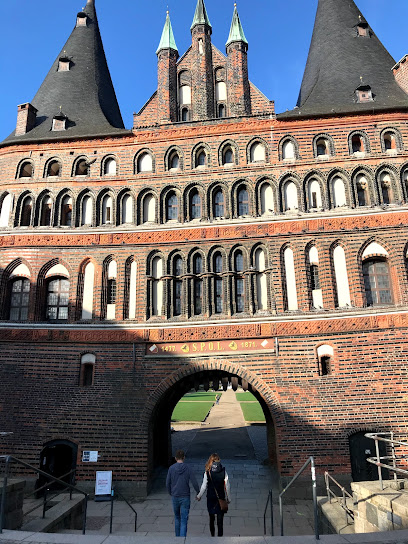
Old Port Gothmund
Explore Old Port Gothmund, a serene fisherman's village near Lübeck, where nature, history, and delicious seafood come together for an unforgettable experience.
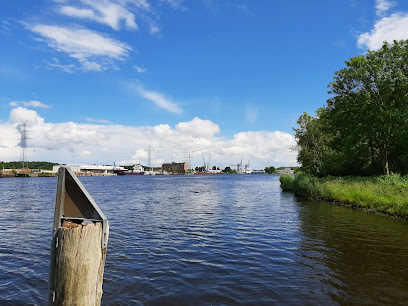
City Park Lübeck
Experience the tranquility of City Park Lübeck, a lush oasis of nature and culture in the heart of Lübeck, perfect for relaxation and exploration.
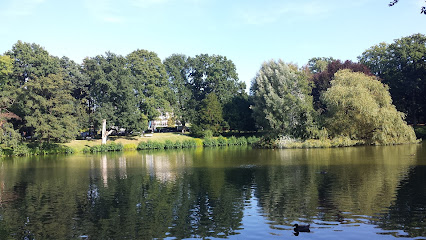
Willy Brandt House, Lübeck
Explore the legacy of Willy Brandt at this engaging museum, celebrating history, politics, and peace in the heart of Lübeck.
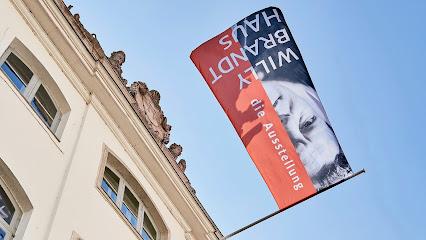
Schulgarten Lübeck
Explore the serene beauty of Schulgarten Lübeck, a botanical garden filled with diverse plant life and tranquil landscapes in the heart of Lübeck, Germany.
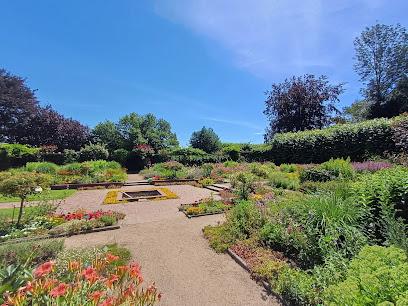
Buddenbrookhaus
Explore the Buddenbrookhaus in Lübeck, a captivating museum celebrating the literary legacy of Thomas Mann and the Buddenbrook family.
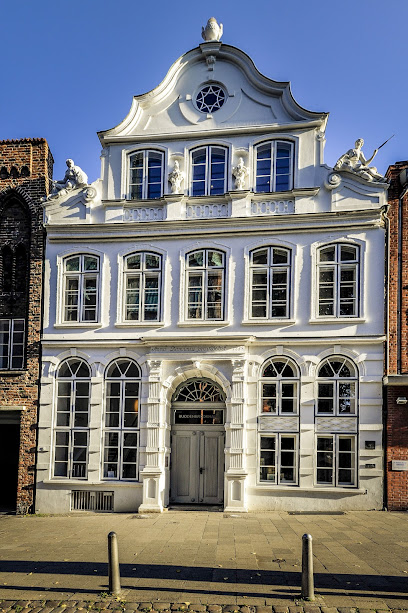
Salzspeicher
Explore Lübeck's Salzspeicher, a historic landmark that showcases the city's rich trading heritage and stunning medieval architecture in the heart of the old town.
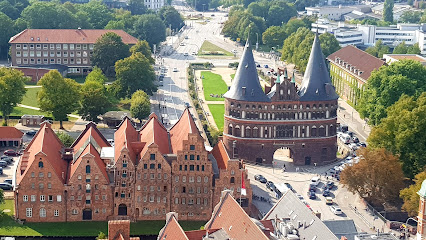
Stadtverwaltung Hansestadt Lübeck
Explore Lübeck's City Hall, a stunning example of Gothic architecture and a key landmark in the heart of this historic Hanseatic city.
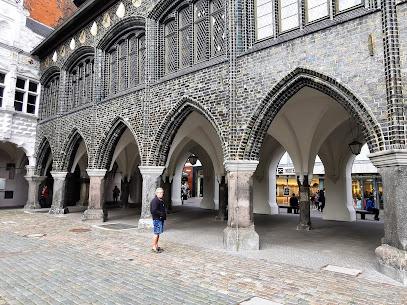
Museum Behnhaus Drägerhaus
Explore the rich art collections and serene atmosphere of Museum Behnhaus Drägerhaus in Lübeck, a cultural treasure for art lovers.
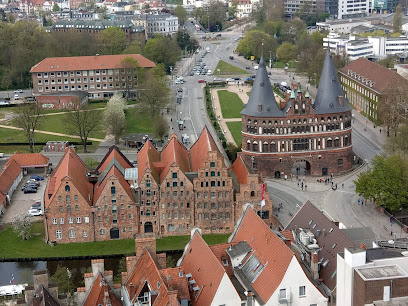
Malerwinkel
Experience the stunning views and artistic legacy of Lübeck at Malerwinkel, a picturesque corner perfect for every traveler.
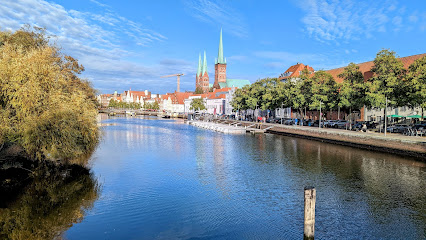
Wassertreppe Lübeck
Experience the beauty and history of Wassertreppe Lübeck, a stunning water staircase in the heart of Germany's charming old town.
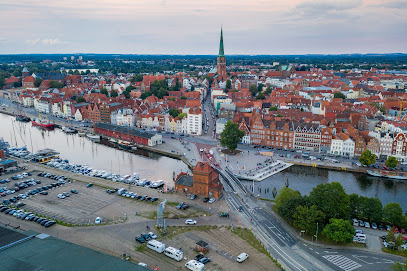
Essential places to dine
L'Osteria
Experience authentic Italian cuisine at L'Osteria in Lübeck - home to delicious pizzas and warm hospitality.
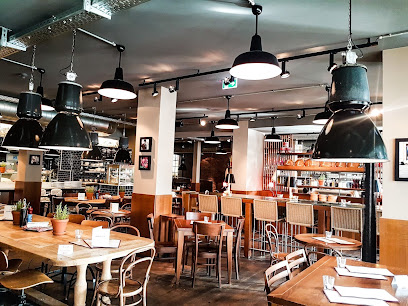
Buddha Bowl - Lübeck
Experience authentic Japanese flavors at Buddha Bowl in Lübeck's historic Altstadt - where culinary artistry meets tradition.
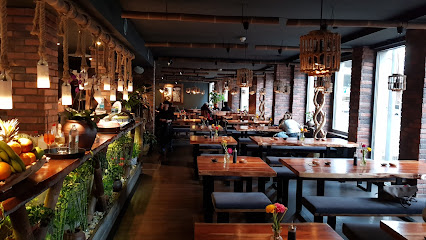
Schiffergesellschaft
Experience Lübeck's culinary heritage at Schiffergesellschaft - where tradition meets modern gastronomy in an enchanting setting.
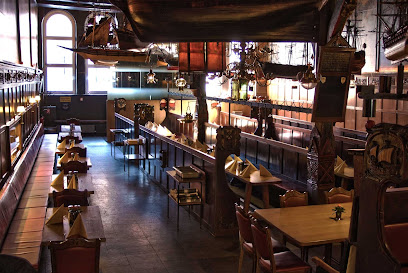
Brauberger zu Lübeck
Savor authentic German cuisine at Brauberger zu Lübeck—where hearty meals meet local brews in a lively beer hall atmosphere.
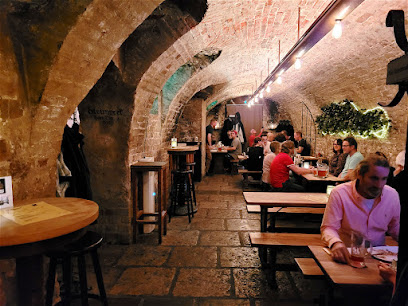
Fangfrisch
Discover Lübeck's culinary treasure at Fangfrisch – where fresh seafood meets exceptional dining in a charming atmosphere.
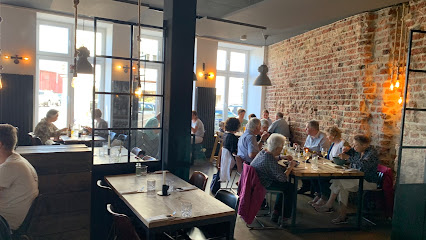
BLOCK HOUSE
Discover BLOCK HOUSE in Lübeck – where premium steaks and warm hospitality come together in a charming setting.
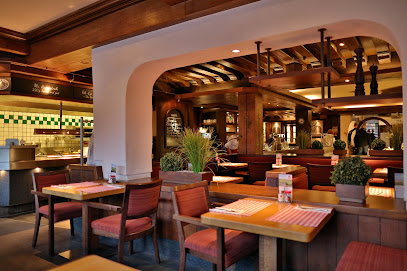
Leo's Juice & Burger
Experience mouthwatering burgers and fresh juices at Leo's Juice & Burger in Lübeck’s historic Altstadt, where quality meets flavor.
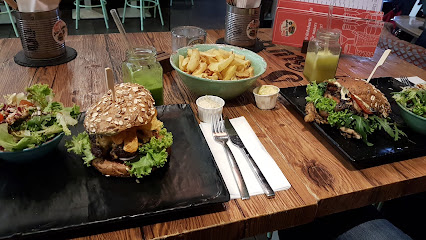
Lübecker Kartoffelkeller
Experience authentic German cuisine at Lübecker Kartoffelkeller, where traditional flavors meet warm hospitality in the heart of Lübeck.
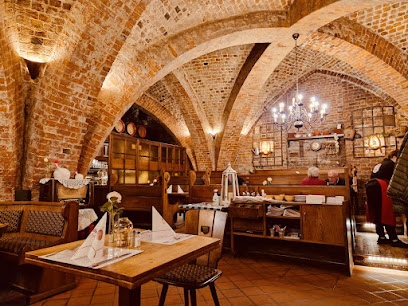
Ratskeller zu Lübeck
Savor authentic German dishes in the heart of Lübeck's historic old town at Ratskeller zu Lübeck.
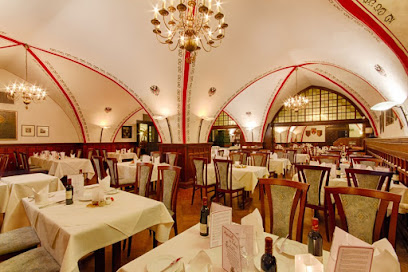
Ristorante San Remo
Discover authentic Italian cuisine at Ristorante San Remo in Lübeck – where every meal is a celebration of flavor and tradition.
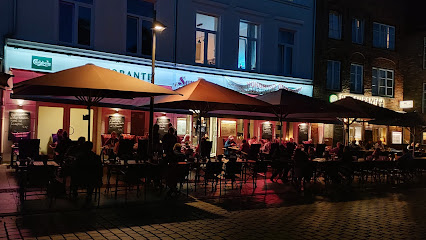
Hacienda Rodizio
Experience authentic Brazilian cuisine at Hacienda Rodizio in Lübeck – where every meal is a celebration of flavor.
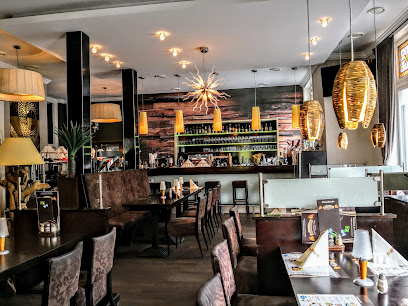
Potters Restaurant
Experience traditional German cuisine with modern flair at Potters Restaurant in Lübeck's charming historic district.
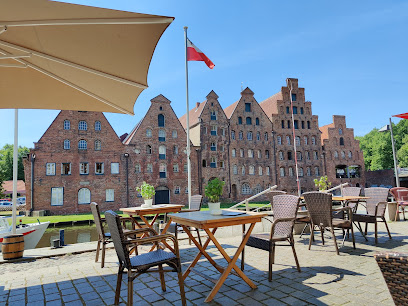
Kartoffelspeicher
Experience the essence of Lübeck's culinary scene at Kartoffelspeicher with delicious potato-based dishes in a cozy setting.
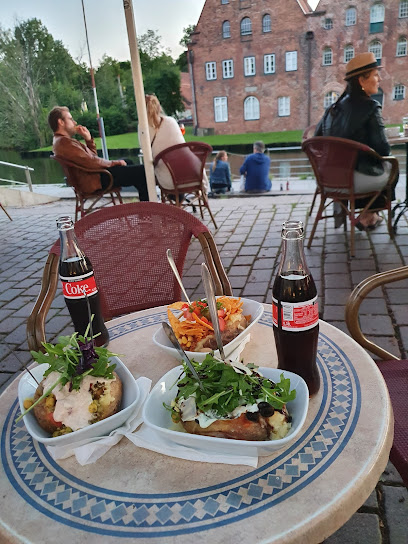
Seaside - Lübeck
Experience authentic Italian cuisine at Seaside - Lübeck, where every dish tells a story of tradition and flavor.
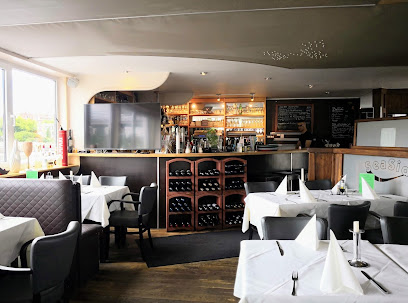
Thana Asia Restaurant
Experience authentic Asian flavors at Thana Asia Restaurant in Lübeck - a haven for food lovers seeking delicious vegan, gluten-free, and seafood options.
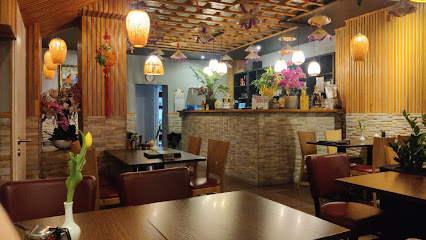
Markets, malls and hidden boutiques
CITTI-PARK
Discover CITTI-PARK in Lübeck: a vibrant shopping mall with diverse shops and dining options, perfect for tourists seeking retail therapy and local culture.
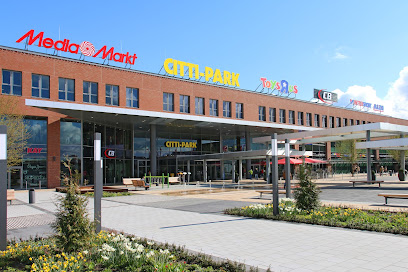
Haerder-Center
Experience vibrant shopping and dining at Haerder-Center, Lübeck's top shopping mall, perfect for travelers seeking local culture and retail therapy.
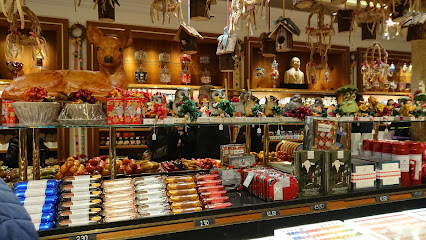
TK Maxx
Discover unbeatable deals on fashionable finds at TK Maxx, a must-visit department store in Lübeck's historical district.
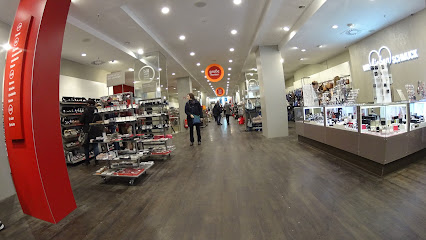
C&A
Discover the latest fashion trends at C&A in Lübeck, your go-to clothing store for stylish apparel for the whole family.
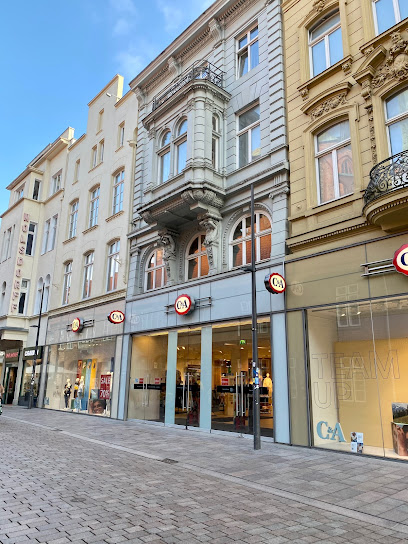
Lichthof Lübeck
Discover a unique blend of shopping and local culture at Lichthof Lübeck, a must-visit mall in Lübeck's historic center.
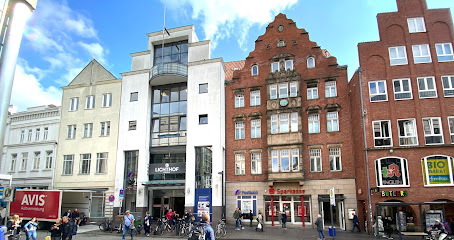
Gandalph Lübeck
Explore Gandalph Lübeck, where gamers and book lovers unite in a vibrant store filled with games, toys, and literary wonders.
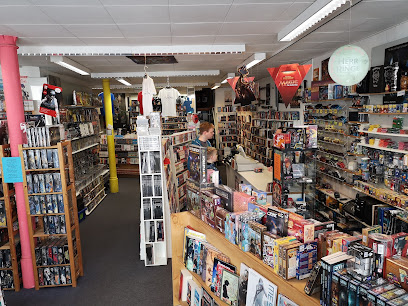
NEW YORKER
Explore the latest trends in fashion at NEW YORKER, Lübeck's premier clothing destination for stylish apparel and accessories.

Vintage Vogue - Retro Boutique
Explore Vintage Vogue in Lübeck, a retro boutique offering a curated selection of unique vintage clothing and accessories that embody timeless style.
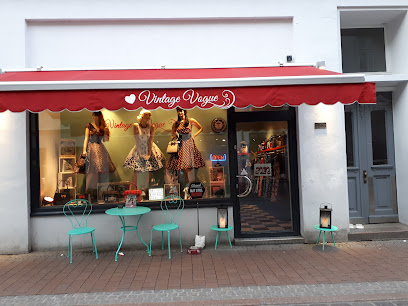
Nanu Nana
Explore Nanu Nana in Lübeck for charming gifts, unique crafts, and delightful home goods that capture the spirit of your travels.
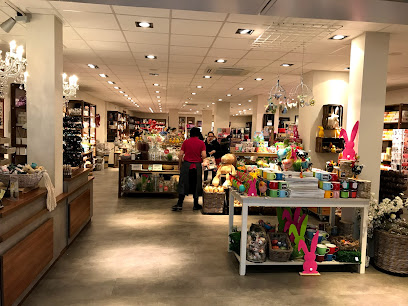
ONE-Fair Trade coffee roaster
Experience ethical indulgence at ONE-Fair Trade Coffee Roaster, where every sip supports fair trade and sustainability in a cozy Lübeck setting.

Between
Explore the vibrant fashion scene at Between in Lübeck – where style meets quality in the heart of the city.
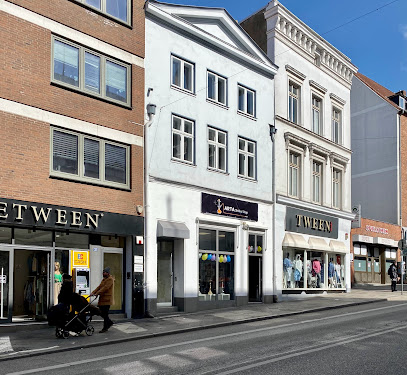
Flying Tiger Copenhagen
Explore a whimsical gift shop in Lübeck filled with unique, affordable items for all ages at Flying Tiger Copenhagen.
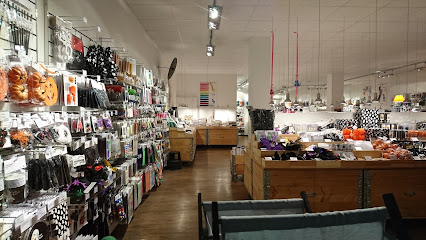
BlueBrixx Store Lübeck
Explore a treasure trove of toys and collectibles at BlueBrixx Store Lübeck, where creativity and fun come to life for all ages.

Wicky Lübeck
Discover unique souvenirs and local crafts at Wicky Lübeck, the ultimate gift shop in the heart of Lübecker Altstadt.
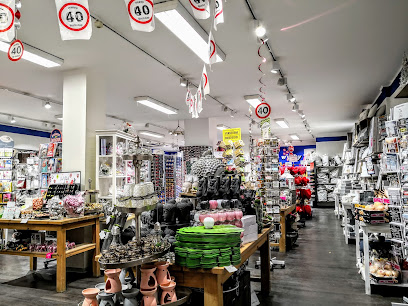
Michaelsen Scandinavian Living
Explore the charm of Scandinavian design at Michaelsen Scandinavian Living in Lübeck, where unique gifts and home goods await you.
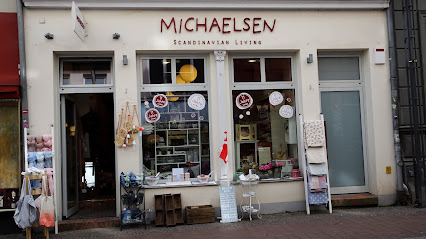
Essential bars & hidden hideouts
Dietrich's Bar - Luebeck
Experience the vibrant nightlife of Lübeck at Dietrich's Bar, where warm hospitality meets an extensive selection of local and international drinks.
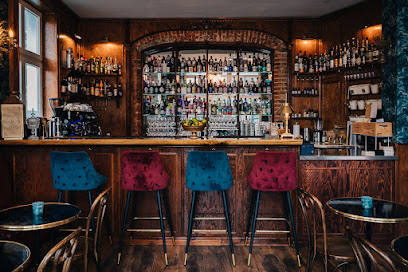
Funambules - Lübeck
Discover the lively spirit of Lübeck at Funambules, where live music, delicious cuisine, and a vibrant atmosphere come together.
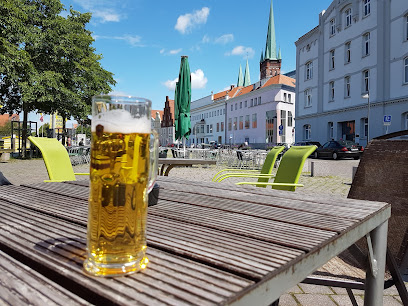
Mac Thomas - Lübeck
Discover the vibrant atmosphere of Mac Thomas, an Irish pub in Lübeck's Altstadt, offering authentic cuisine and a friendly ambiance.
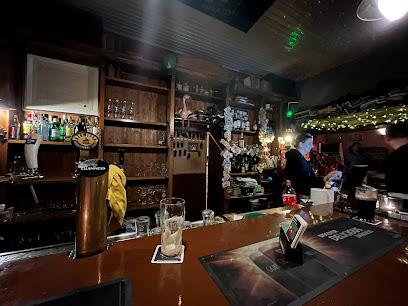
Blauer Engel - Lübeck
Discover the vibrant atmosphere of Blauer Engel, Lübeck's beloved pub, known for its extensive drink selection and lively ambiance, perfect for tourists.
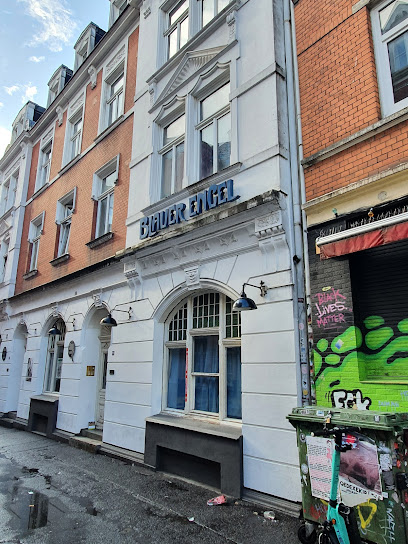
Tonfink - Kulturcafé & Bar - Lübeck
Experience the vibrant cultural atmosphere of Tonfink, a unique bar and café in Lübeck, known for live music and delightful beverages.
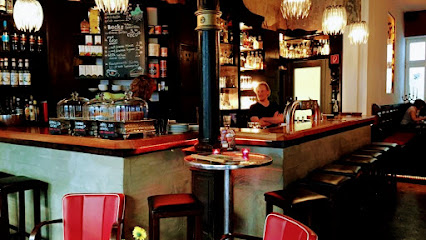
Traffico Cocktailbar, Restaurant und Café - täglich bis Open End!
Experience the vibrant nightlife at Traffico Cocktailbar in Lübeck, where cocktails, coffee, and culinary delights await in a lively atmosphere.
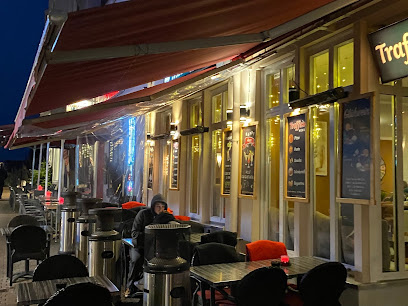
Larry's Bar & Restaurant
Experience the vibrant flavors of the Philippines at Larry's Bar & Restaurant in Lübeck, where culinary delight meets warm hospitality.
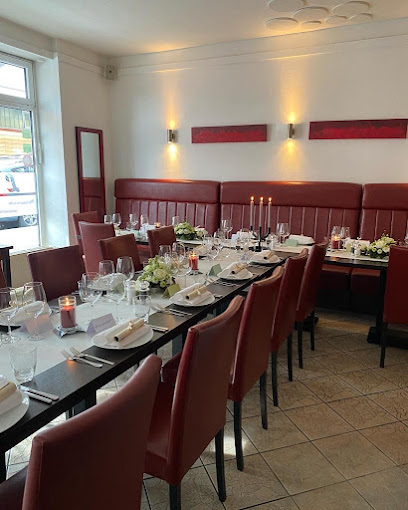
Sternschnuppe Lübeck
Experience the charm of Sternschnuppe Lübeck, where delightful drinks and a cozy atmosphere await travelers amidst historic surroundings.
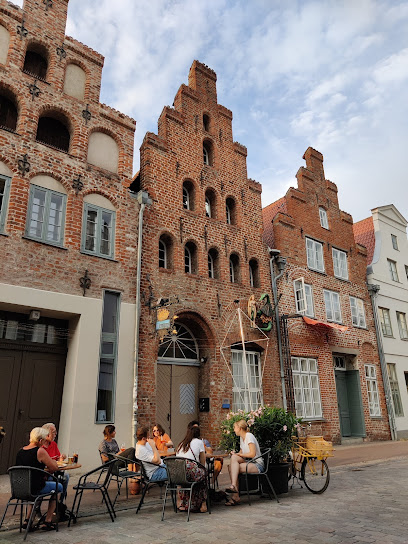
Torrio's - American Bar
Experience the vibrant atmosphere of Torrio's, Lübeck's premier American bar, offering a delightful blend of drinks, food, and fun.
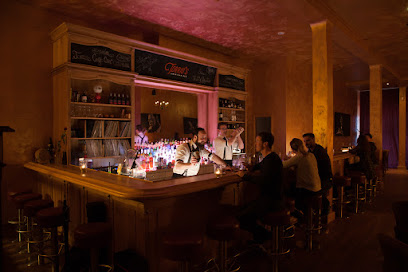
Finnegan Lübeck
Discover Finnegan Lübeck: A vibrant Irish pub in Lübeck's historic center, offering authentic cuisine and a lively atmosphere.
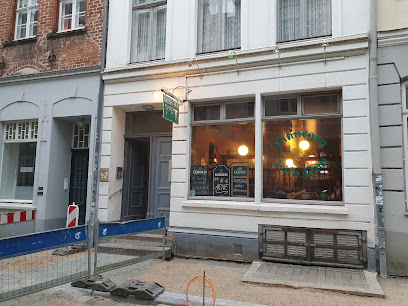
Kandinsky - Lübeck
Discover Kandinsky, a unique bar and restaurant in Lübeck's Altstadt, offering a vibrant atmosphere and diverse culinary delights.
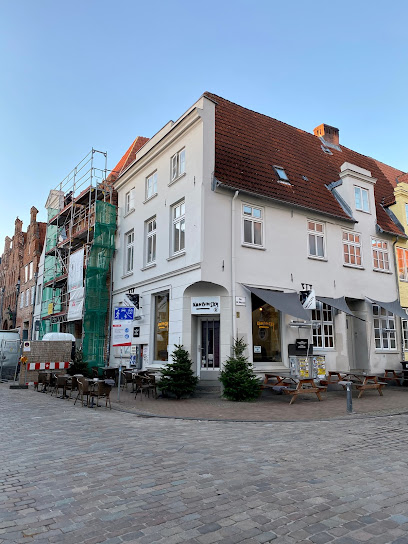
Weltwirtschaft - Lübeck
Experience the vibrant nightlife of Lübeck at Weltwirtschaft, a lively bar offering a unique atmosphere and excellent drinks to enjoy with friends.
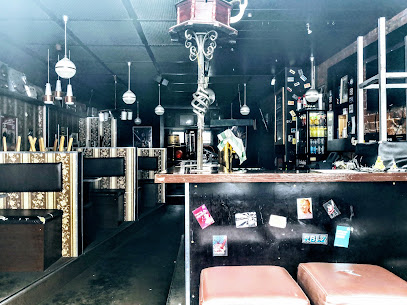
Soul and Kitchen
Experience the vibrant flavors and cozy ambiance of Soul and Kitchen in Lübeck's historic Altstadt, an unmissable culinary gem.
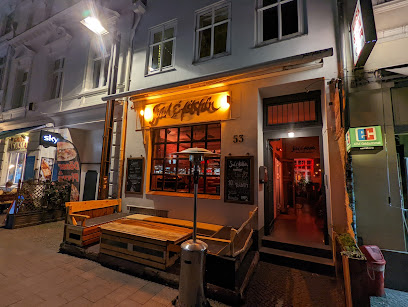
Gang No. 56 - Lübeck
Discover the lively ambiance and extensive drink selection at Gang No. 56 - a must-visit bar in the historic Lübeck Altstadt.
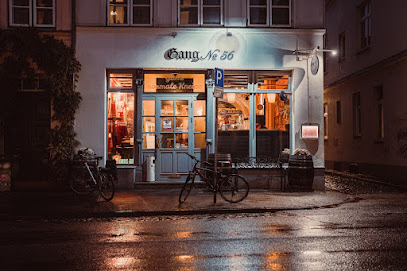
Unklar Bar - Lübeck
Experience the vibrant nightlife at Unklar Bar in Lübeck, a cozy spot perfect for unwinding and socializing after a day of exploration.
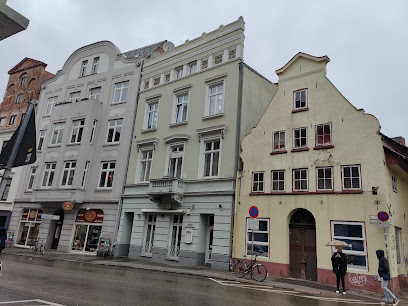
Local Phrases
-
- HelloHallo
[hah-loh] - GoodbyeAuf Wiedersehen
[owf vee-der-zay-en] - YesJa
[yah] - NoNein
[nine] - Please/You're welcomeBitte
[bit-teh] - Thank youDanke
[dahn-keh] - Excuse me/SorryEntschuldigung
[ent-shool-dee-goong] - How are you?Wie geht es dir?
[vee gayt es deer] - Fine. And you?Gut. Und du?
[goot oont doo] - Do you speak English?Sprechen Sie Englisch?
[shpre-khen zee eng-leesh] - I don't understandIch verstehe nicht
[ikh fer-shtay-eh nikht]
- HelloHallo
-
- I'd like to see the menu, pleaseIch möchte bitte die Speisekarte sehen
[ikh merkh-teh bit-teh dee shpy-ze-kar-teh zay-en] - I don't eat meatIch esse kein Fleisch
[ikh es-seh kine flysh] - Cheers!Prost!
[prohst] - I would like to pay, pleaseIch möchte bitte bezahlen
[ikh merkh-teh bit-teh be-tsal-en]
- I'd like to see the menu, pleaseIch möchte bitte die Speisekarte sehen
-
- Help!Hilfe!
[hil-feh] - Go away!Geh weg!
[geh veg] - Call the Police!Rufen Sie die Polizei!
[roo-fen zee dee po-lee-tsay] - Call a doctor!Rufen Sie einen Arzt!
[roo-fen zee i-nen artsht] - I'm lostIch habe mich verirrt
[ikh hah-beh mikh feh-rikt] - I'm illIch bin krank
[ikh bin krank]
- Help!Hilfe!
-
- I'd like to buy...Ich möchte ... kaufen
[ikh merkh-teh ... kow-fen] - I'm just lookingIch schaue nur
[ikh shou-eh noor] - How much is it?Wie viel kostet es?
[vee feel kohs-tet es] - That's too expensiveDas ist zu teuer
[dahs ist tsoo toy-er] - Can you lower the price?Können Sie den Preis senken?
[kern-en zee den price zehn-ken]
- I'd like to buy...Ich möchte ... kaufen
-
- What time is it?Wie spät ist es?
[vee shpeht ist es] - It's one o'clockEs ist ein Uhr
[es ist iyn oor] - Half past (10)Halb (zehn)
[halb (tsayn)] - MorningMorgen
[mohr-gen] - AfternoonNachmittag
[nahk-mit-tahk] - EveningAbend
[ah-bent] - YesterdayGestern
[gehs-tern] - TodayHeute
[hoy-teh] - TomorrowMorgen
[mohr-gen] - 1Eins
[iyns] - 2Zwei
[tsvay] - 3Drei
[dry] - 4Vier
[feer] - 5Fünf
[foonf] - 6Sechs
[zeks] - 7Sieben
[zee-ben] - 8Acht
[ahkt] - 9Neun
[noyn] - 10Zehn
[tsayn]
- What time is it?Wie spät ist es?
-
- Where's a/the...?Wo ist ein/der...?
[vo ist iyn/der] - What's the address?Was ist die Adresse?
[vas ist dee ah-dre-say] - Can you show me (on the map)?Können Sie mir zeigen (auf der Karte)?
[kern-en zee meer tsai-gen (owf der kar-teh)] - When's the next (bus)?Wann kommt der nächste (Bus)?
[vahn kohmt der naykhs-teh (boos)] - A ticket (to ....)Eine Fahrkarte (nach ...)
[iyn-eh fahr-kar-teh (nakh ...)]
- Where's a/the...?Wo ist ein/der...?
History of Lubeck
-
Lübeck was founded in 1143 by Adolf II of Holstein on the site of an older Slavic settlement. The city quickly grew due to its strategic location along the Baltic Sea, becoming a pivotal trading post in Northern Europe.
-
In the 13th century, Lübeck became a leading city of the Hanseatic League, a powerful economic and defensive alliance of merchant guilds and market towns. The city prospered as a major trading hub, dealing in goods such as salt, fish, furs, and timber.
-
Lübeck's Old Town is renowned for its Brick Gothic architecture. Notable structures include the Holstentor gate, St. Mary's Church, and the Lübeck Cathedral. In 1987, the city’s medieval old town was declared a UNESCO World Heritage site, preserving its historical buildings and layout.
-
The Lübeck Law was a set of municipal laws that governed the city and was adopted by numerous other towns in the Baltic region. It provided a framework for trade, municipal governance, and civic rights, influencing urban development in Northern Europe.
-
Lübeck played a significant role in the Protestant Reformation in the 16th century. Johannes Bugenhagen, a prominent figure in the Reformation, was called to Lübeck to organize the city's church affairs according to Lutheran principles, solidifying its place in religious history.
-
During the Thirty Years' War (1618–1648), Lübeck sought to remain neutral, focusing on maintaining its trade routes and economic stability. Despite its efforts, the city faced hardships and economic decline due to the widespread conflict and shifting trade dynamics.
-
Lübeck was occupied by Napoleon's forces in 1806. The city's strategic importance and resources made it a valuable asset for the French Empire. The occupation brought significant changes, including economic strain and administrative restructuring.
-
The 19th century saw Lübeck transitioning from a medieval trading city to an industrialized urban center. The city expanded its infrastructure, including railways and modern port facilities, fostering economic growth and integration into the broader German economy.
-
Lübeck suffered extensive bombing during World War II, particularly in 1942, leading to the destruction of many historical buildings. Despite the devastation, significant efforts were made post-war to rebuild and restore the city's architectural heritage.
-
Today, Lübeck is a vibrant city that harmoniously blends its rich history with modern amenities. It remains a cultural and economic hub, known for its marzipan, literary heritage (home to Nobel laureate Thomas Mann), and as a gateway to the Baltic Sea.
Lubeck Essentials
-
Lübeck is located in the northern part of Germany and is well-connected by various modes of transportation. The nearest major airport is Hamburg Airport (HAM), which is about 65 kilometers away. From Hamburg, you can take a direct train to Lübeck, which takes around 45 minutes. Alternatively, you can drive or take a bus from Hamburg to Lübeck. If you are traveling by train from other parts of Germany or Europe, Lübeck's main train station (Lübeck Hauptbahnhof) is well-served by regional and long-distance trains.
-
Lübeck has an efficient public transportation system, including buses and trains, operated by Stadtverkehr Lübeck (SL). Tickets can be purchased at vending machines, online, or via mobile apps. The city is also very walkable, especially in the old town (Altstadt), where many of the main attractions are located. For those who prefer cycling, Lübeck offers bike rentals and has numerous bike paths. Taxis are readily available, and ridesharing services like Uber are also an option.
-
The official currency in Germany is the Euro (EUR). Credit and debit cards are widely accepted in hotels, restaurants, and shops, but it is advisable to carry some cash, especially for small purchases or in markets. ATMs are widely available throughout the city, including at the main train station and in shopping areas.
-
Lübeck is generally a safe city for tourists. However, it is always wise to take standard precautions. Avoid poorly lit areas at night and be mindful of your belongings in crowded places. The areas around the train station and some parts of St. Lorenz may have higher incidences of petty crime, so stay vigilant. Always use licensed taxis and avoid leaving valuables unattended.
-
In case of an emergency, dial 112 for immediate assistance from police, fire, or medical services. The main hospital in Lübeck is the University Hospital Schleswig-Holstein (UKSH), located at Ratzeburger Allee 160. Pharmacies (Apotheken) are plentiful and can provide over-the-counter medications. It is advisable to have travel insurance that covers medical emergencies.
-
Fashion: Do dress smart-casual when dining out or visiting cultural sites. Avoid overly casual attire like flip-flops and tank tops in such settings. Religion: Do be respectful when visiting churches, and avoid loud conversations. Public Transport: Do validate your ticket before boarding. Don’t put your feet on the seats. Greetings: Do greet people with a friendly 'Guten Tag' or 'Moin' (local greeting). A firm handshake is standard. Eating & Drinking: Do try local specialties like Marzipan and Lübecker Rotspon. Don’t forget to tip around 10% in restaurants.
-
To experience Lübeck like a local, visit the weekly markets such as the one at Marktplatz for fresh produce and local goods. Take a stroll through the picturesque streets of the Altstadt and enjoy a coffee at a local café. Don’t miss the chance to explore the lesser-known neighborhoods like St. Gertrud and St. Jürgen, which offer a more tranquil experience. Attend local festivals such as the Lübeck Christmas Market during the holiday season for a unique cultural experience.
Nearby Cities to Lubeck
-
Things To Do in Hamburg
-
Things To Do in Rostock
-
Things To Do in Sønderborg
-
Things To Do in Bremen
-
Things To Do in Nyborg
-
Things To Do in Næstved
-
Things To Do in Odense
-
Things To Do in Slagelse
-
Things To Do in Hannover
-
Things To Do in Kolding
-
Things To Do in Køge
-
Things To Do in Ribe
-
Things To Do in Kalundborg
-
Things To Do in Roskilde
-
Things To Do in Vejle

















